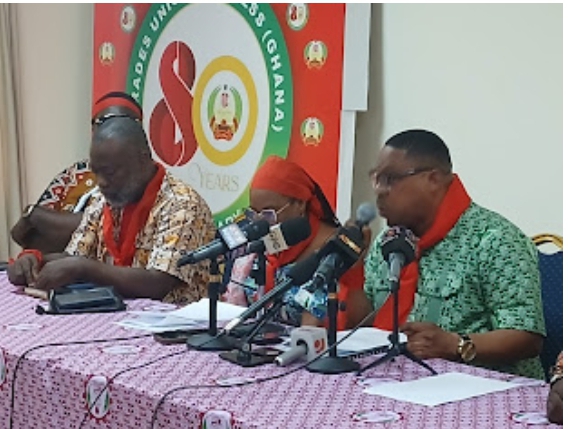“Ghana’s Education Sector in Crisis: TEWU Declares Nationwide Strike”
"Ghana's Education Sector in Crisis: TEWU Declares Nationwide Strike"

Story by Fada Amakye
A nationwide strike by the Teachers and Educational Workers’ Union (TEWU) has brought Ghana’s education sector to a grinding halt. Non-teaching staff from various institutions, including the Ghana Education Service and public universities, are staying home in solidarity due to long-standing grievances. The union’s demands are multifaceted, focusing on critical issues that have been neglected for years.
The union’s key demands include immediate signing of service conditions for non-teaching staff to ensure clarity and fairness in their employment terms. Additionally, non-teaching staff are seeking clarity and equitable treatment regarding the Continuous Professional Development and Skills Allowance (CPDA) to address feelings of marginalization.
Security and catering personnel are also demanding fair compensation for weekend and overtime work, highlighting the often-overlooked contributions of support staff. Furthermore, the union is pushing for the resolution of promotional issues within the Ghana Education Service to address frustrations and perceived biases.
TEWU Secretary, King James Azortibah, emphasized the union’s determination to address these concerns, stating that the strike is a calculated response to years of institutional neglect and systemic injustices. The union’s resolve is driven by a desire for fair treatment and systemic change, ensuring that all educational workers are valued and respected.
The government and Fair Wages and Salaries Commission are under significant pressure to engage in meaningful dialogue with the union to resolve the impasse. The outcome of this strike could have far-reaching implications for Ghana’s education system and labor landscape, potentially affecting the academic year and the overall quality of education.
As stakeholders across the country watch closely, the union remains resolute in its pursuit of justice and equity for its members.
The hope is that through constructive negotiations, a resolution can be reached that benefits all parties involved and ensures the continuity and quality of education in Ghana.
The strike serves as a critical moment for reflection on the importance of fair labor practices and the need for systemic reforms in the education sector.





